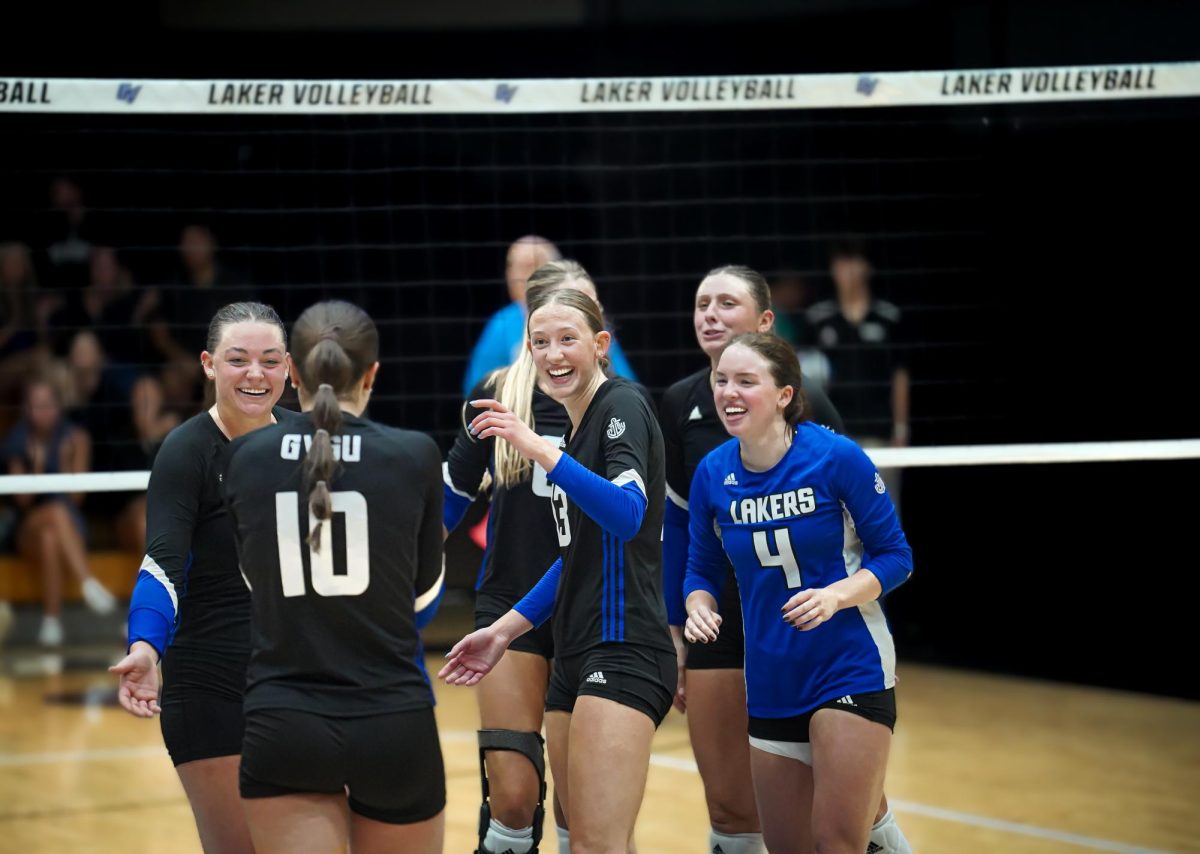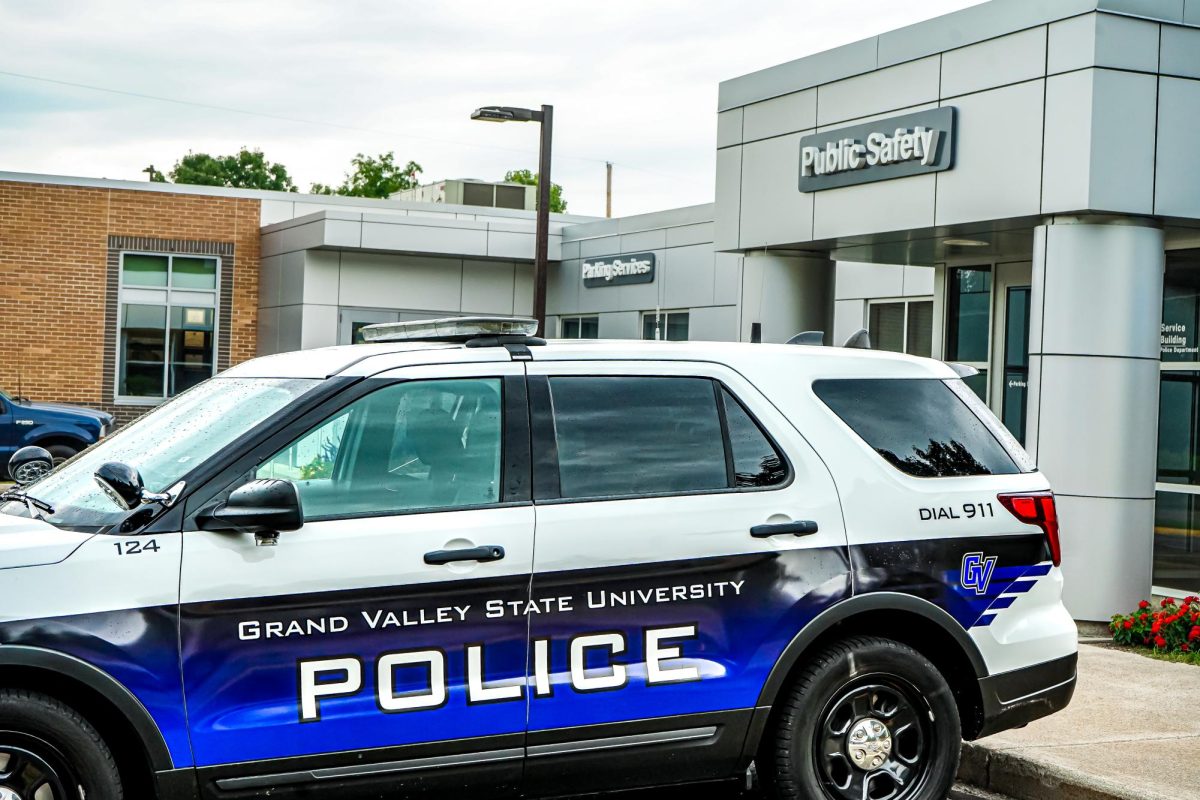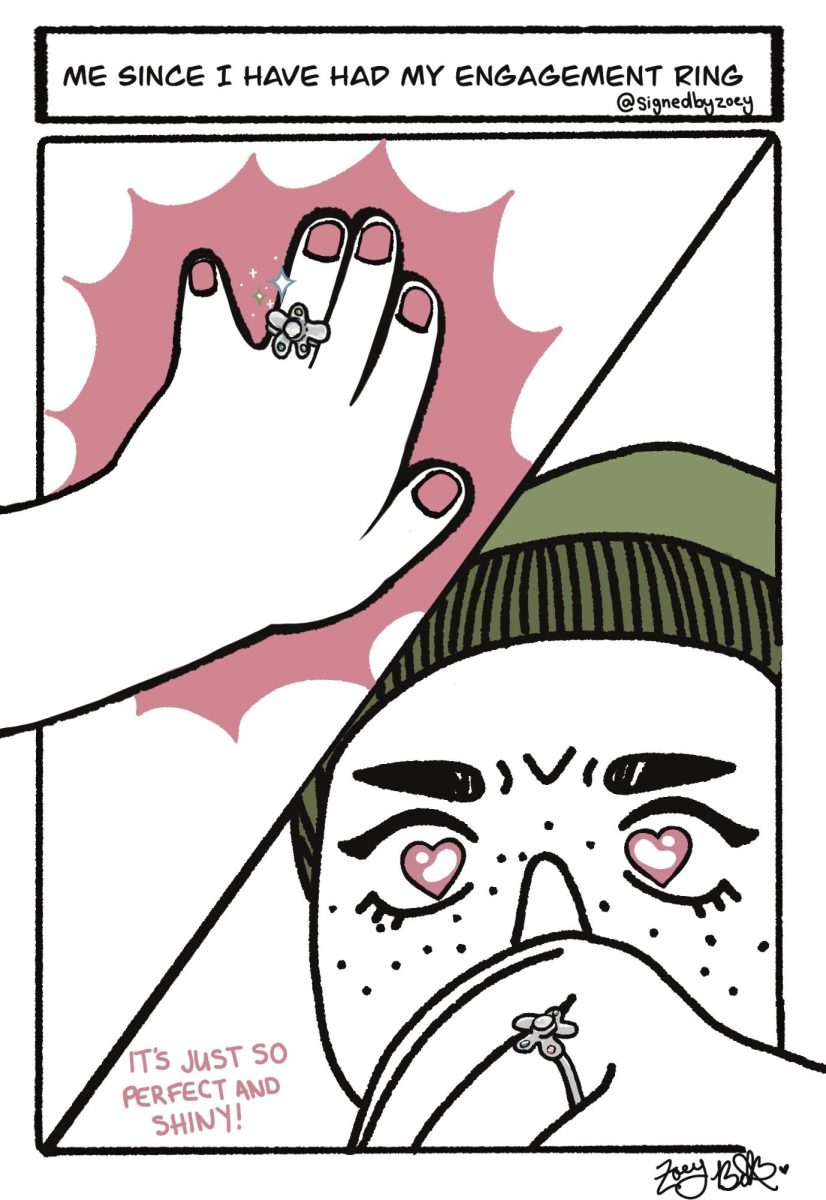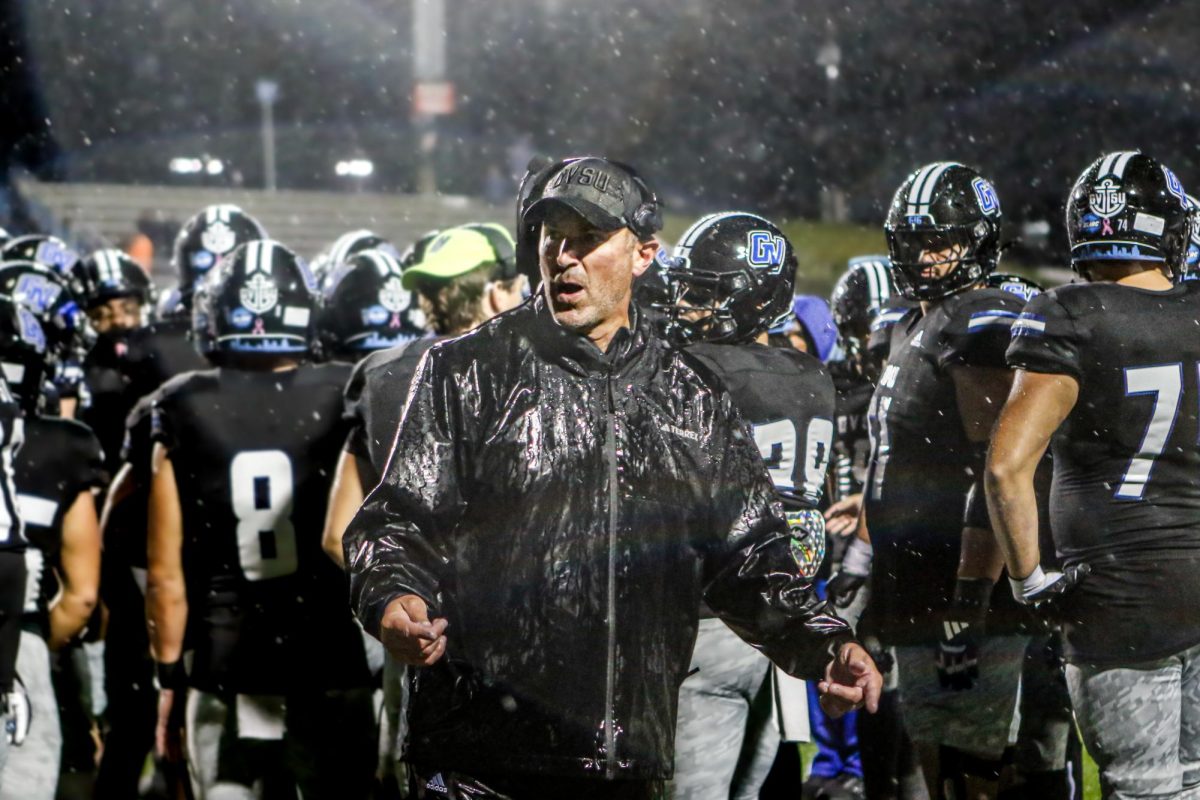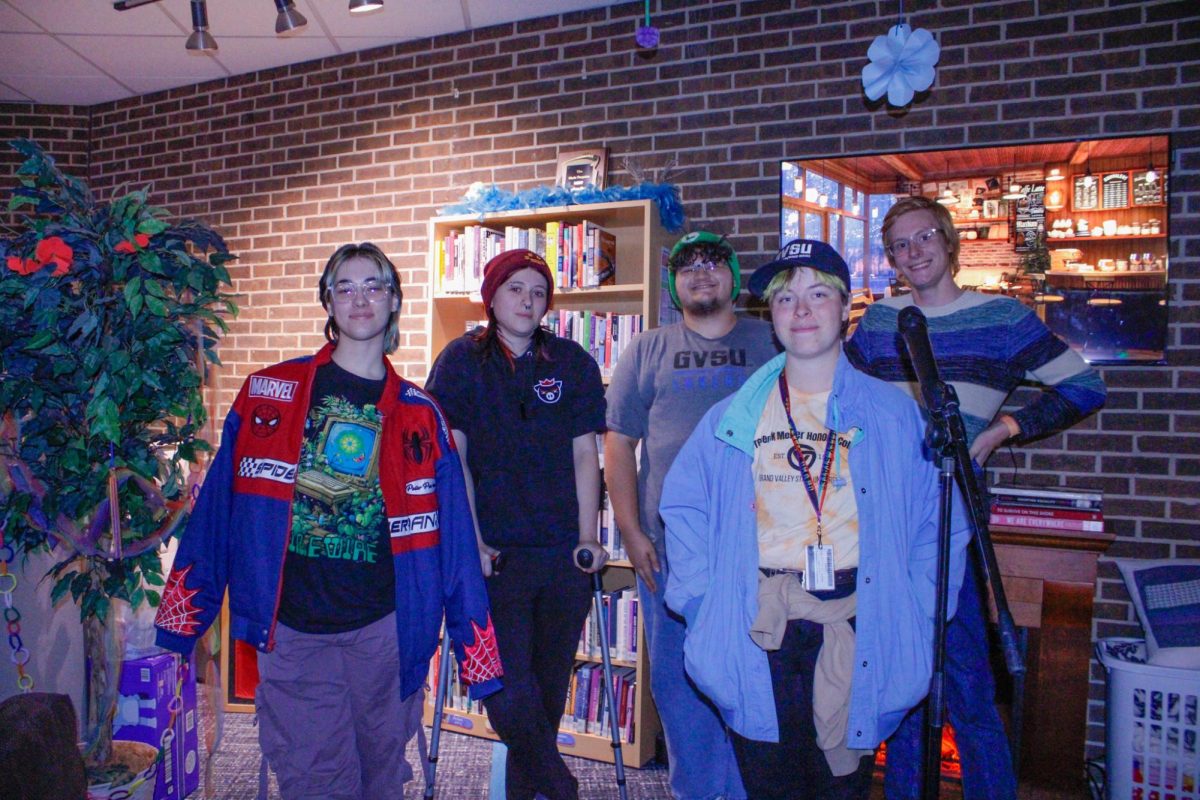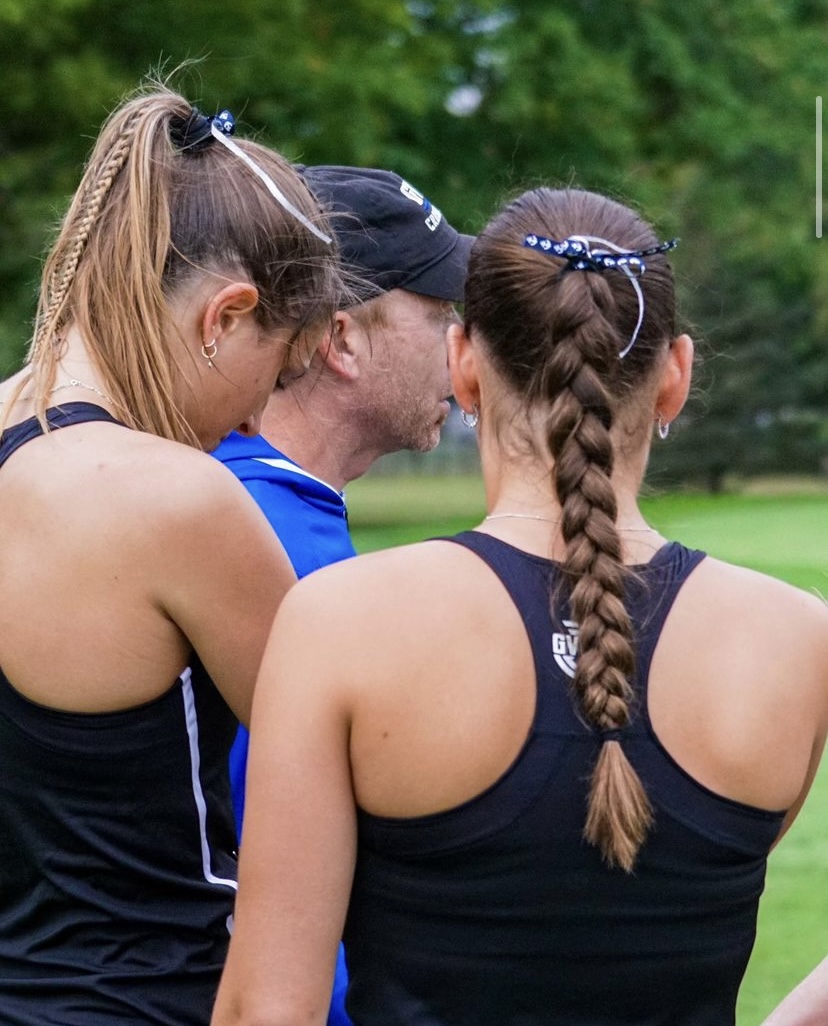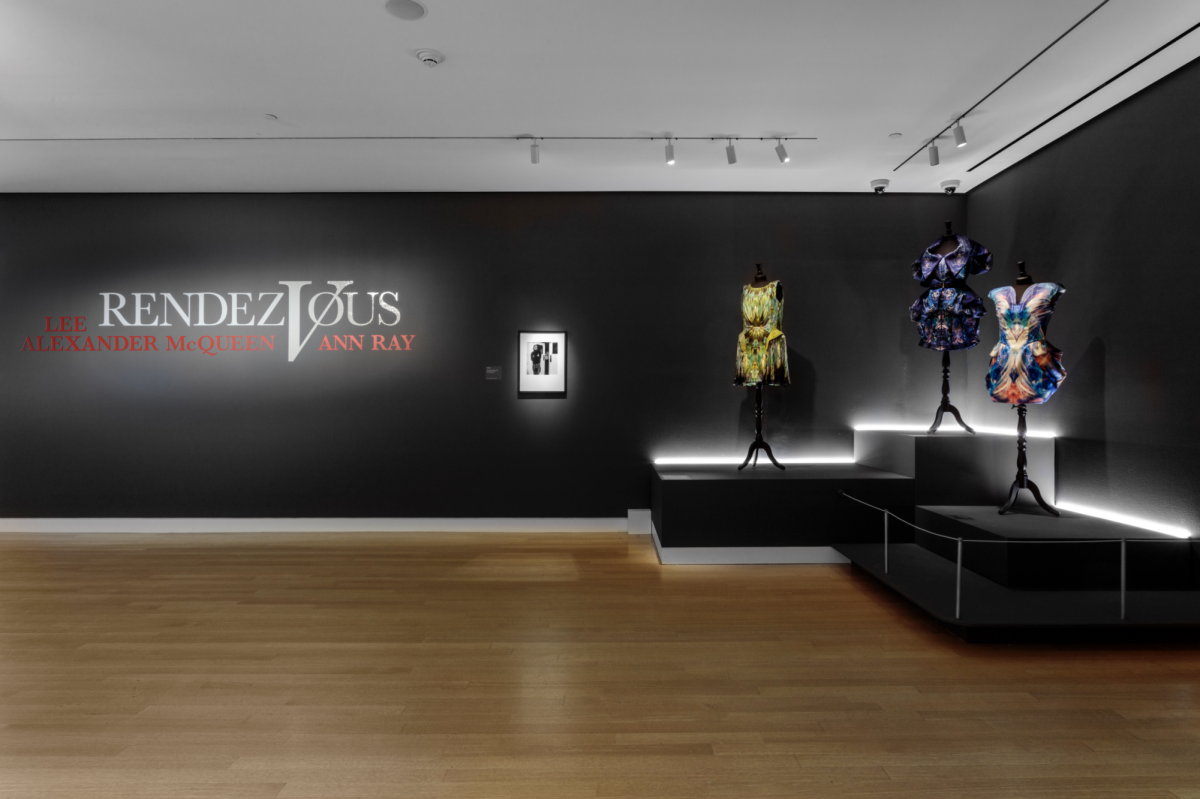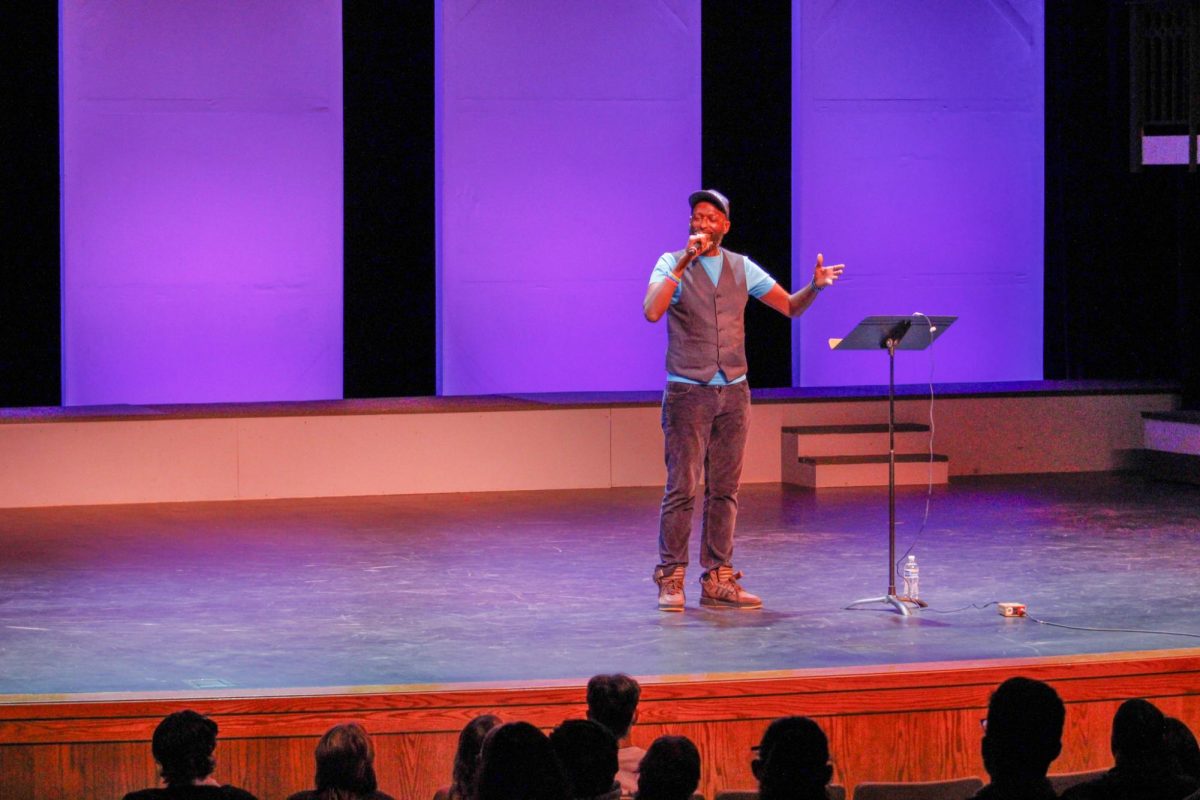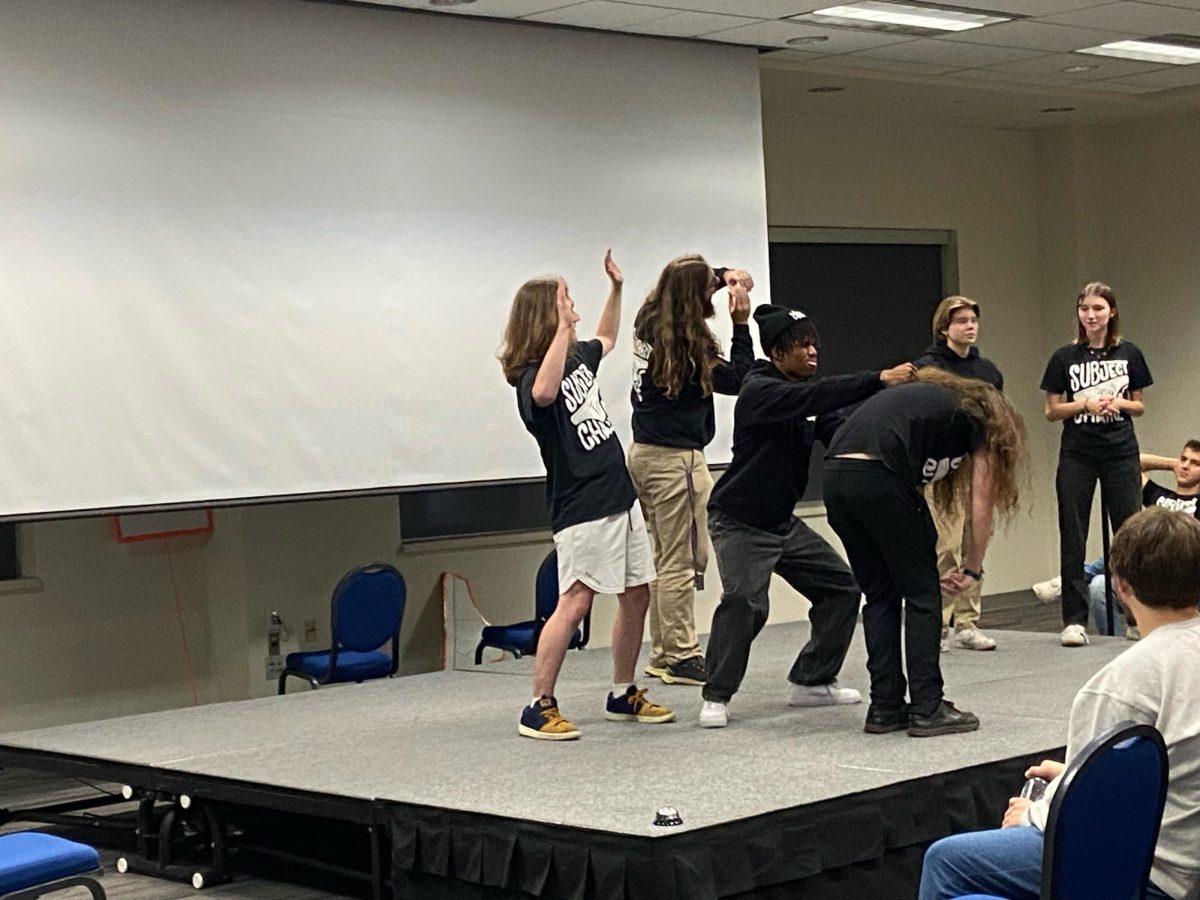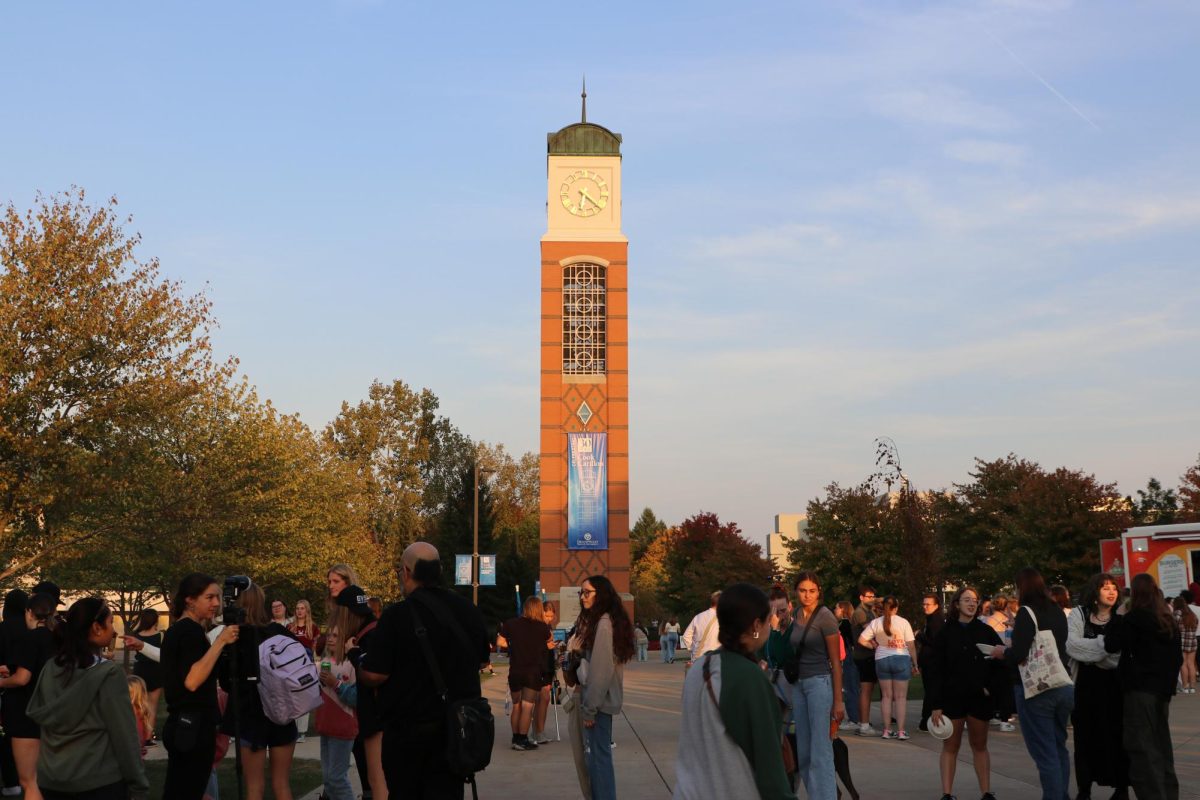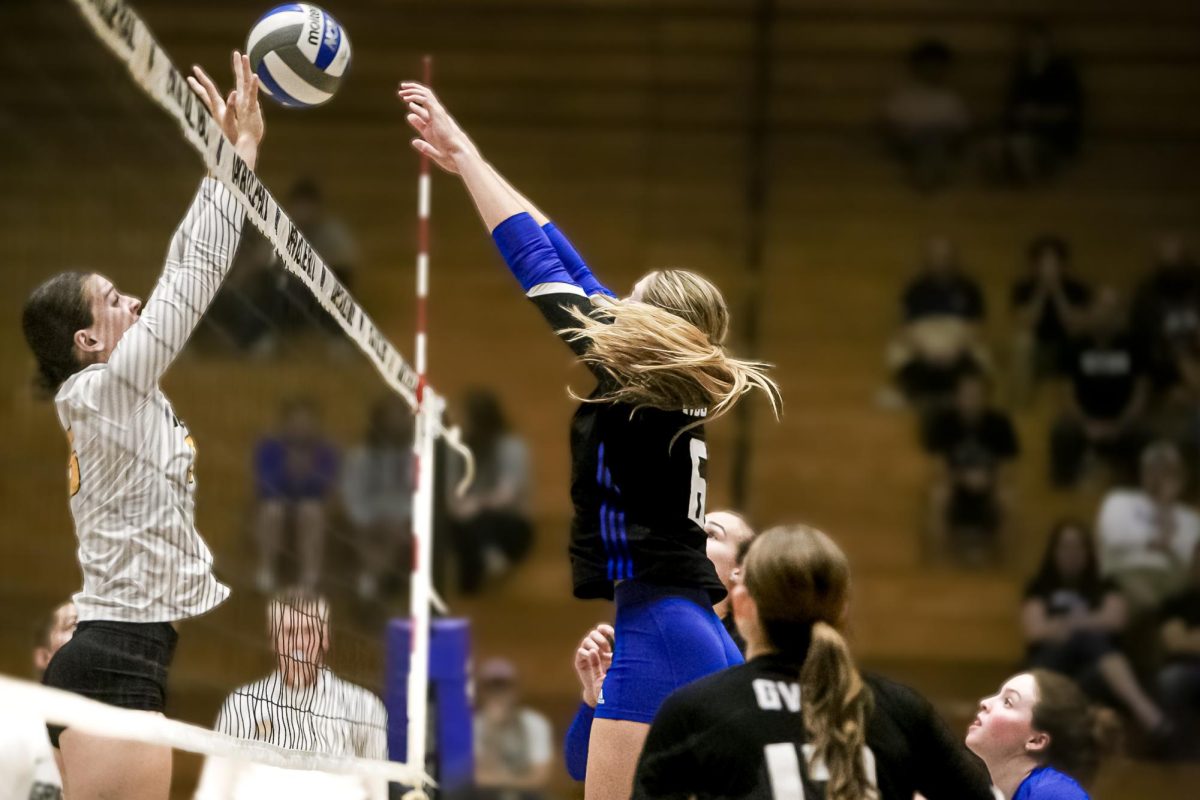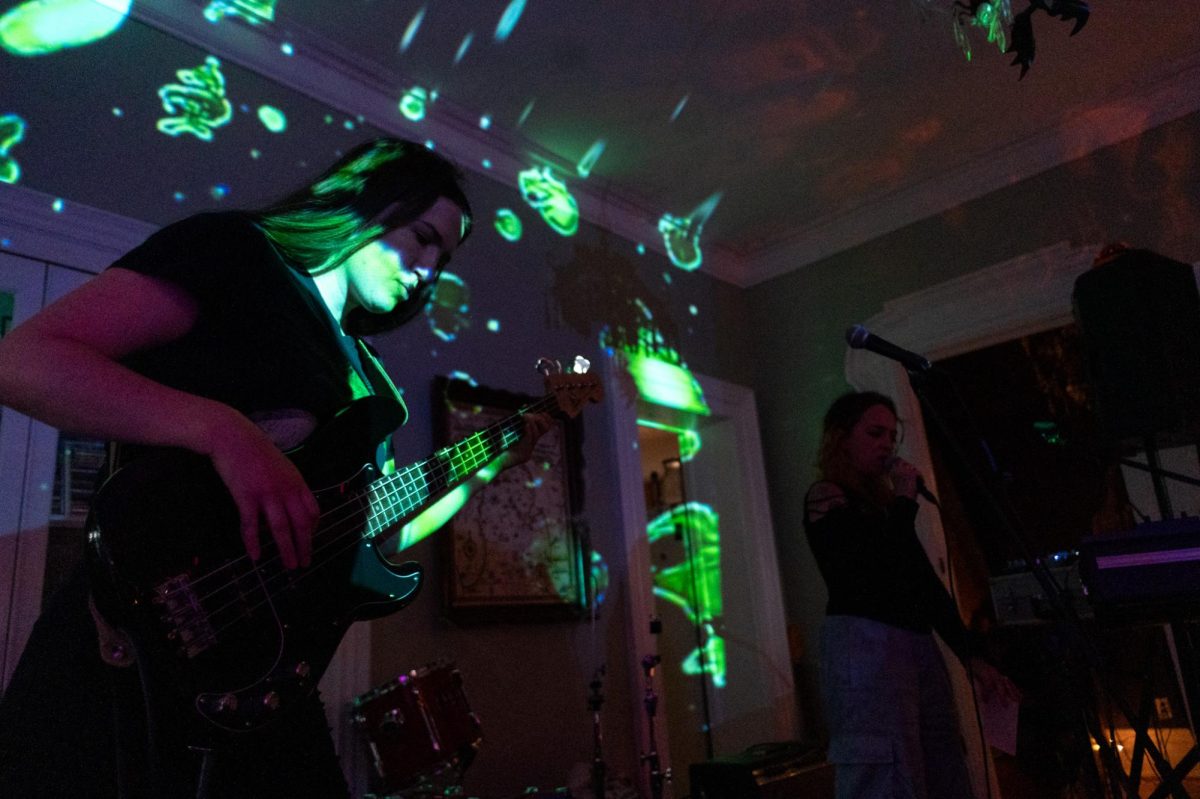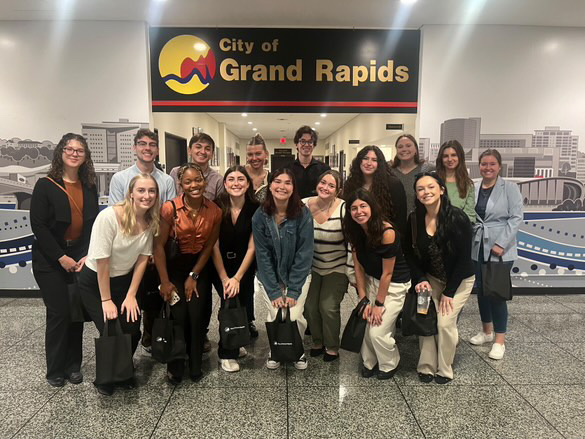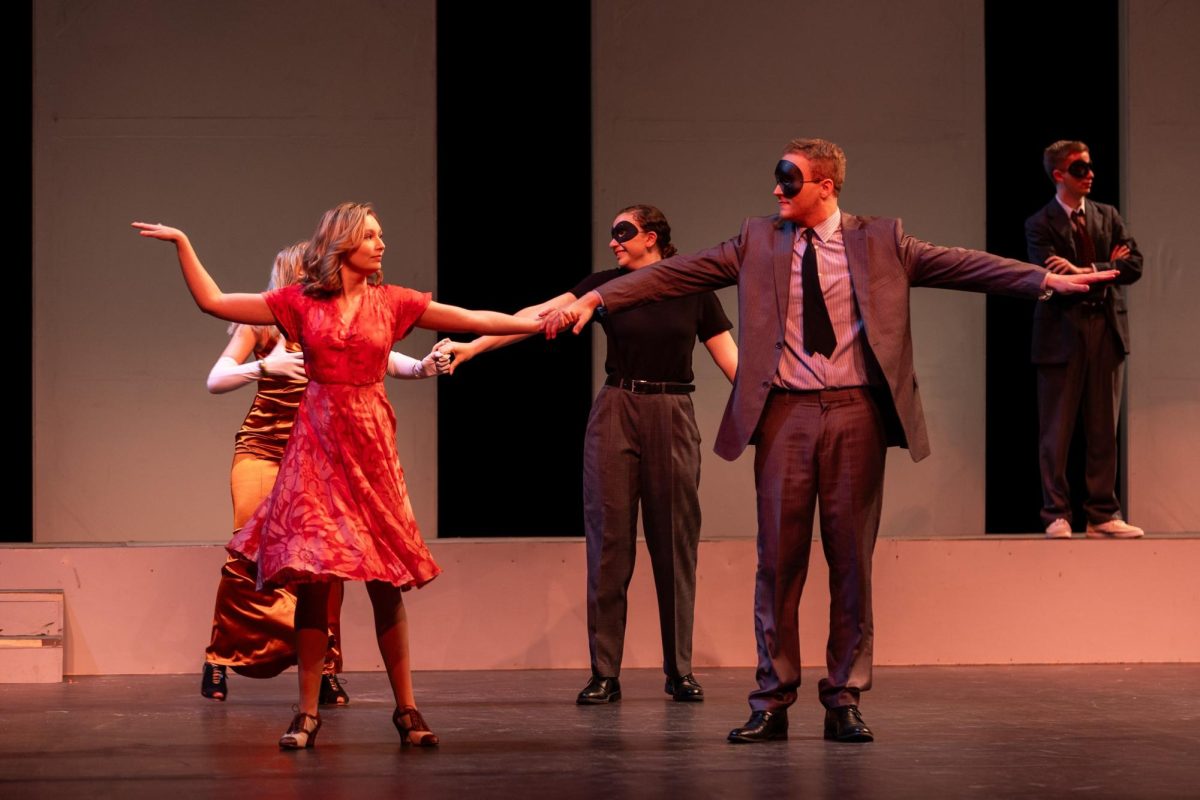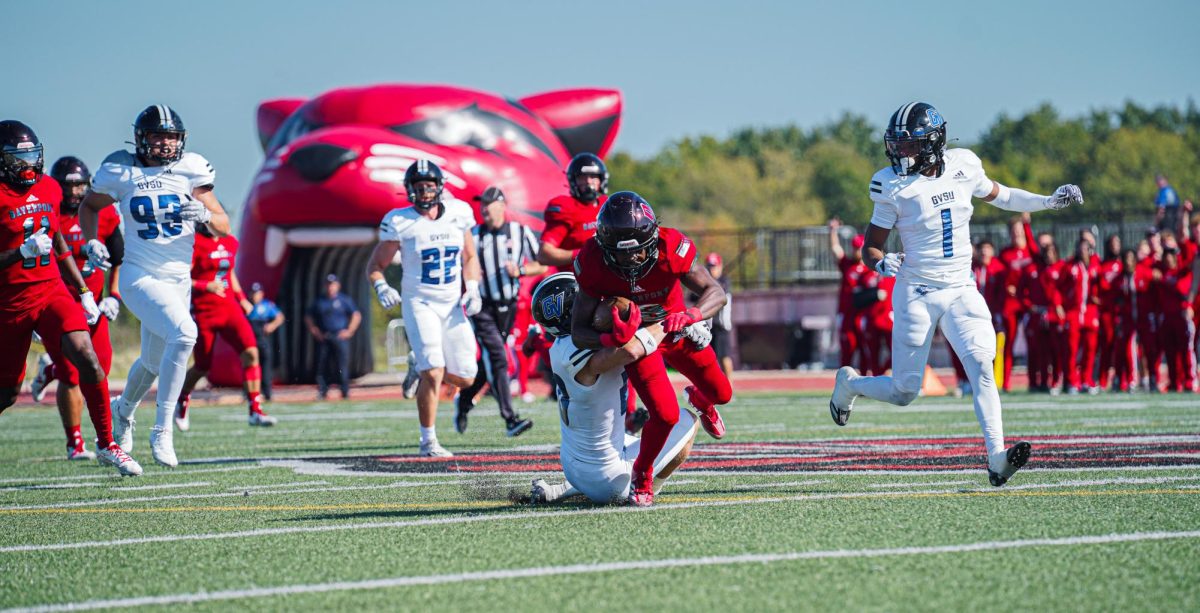‘My costume is not my consent’
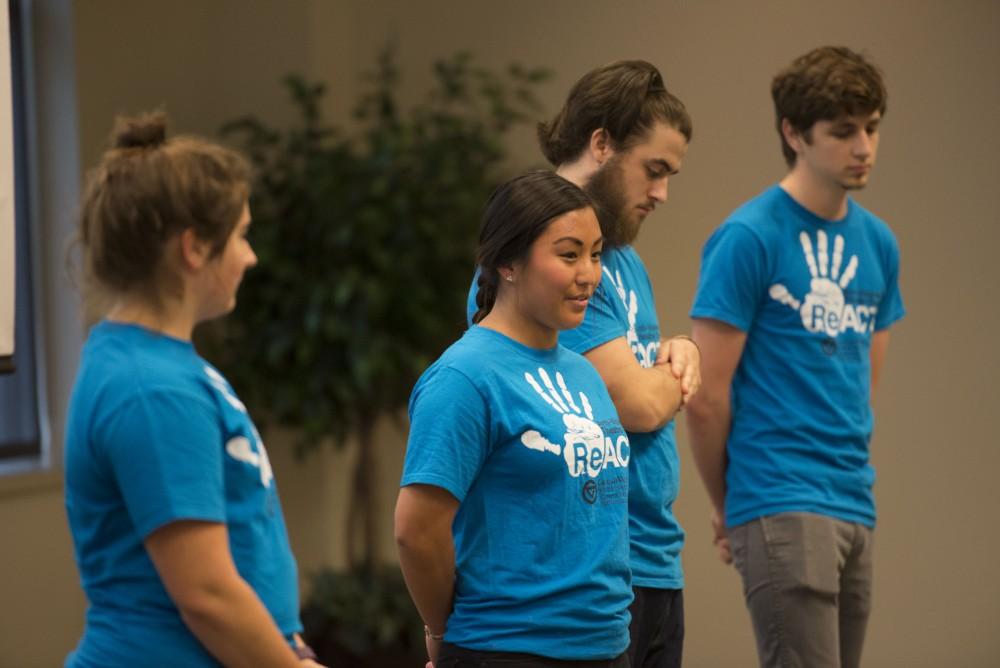
GVL / Luke Holmes – Students perform a short skit to raise awareness of rape. “It’s On Us: Champions of Change Kickoff” was held in the Pere Marquette room on Friday, Oct. 7, 2016.
Oct 27, 2016
When college students make Halloween plans, they might think about crafting the perfect costume, stocking up on alcohol and scoping out the liveliest parties. What most students might not consider, though, is their potential risk for sexual assault and the role their costumes play in that.
To engage students in thinking about sexual assault and brainstorming preventative measures, Grand Valley State University’s anti-violence theater troupe, ReACT!, held an interactive performance Monday, Oct. 24 titled, “My Costume Is Not My Consent: (A)dressing Heroism.”
During the performance, Alli Metz, the associate professor of theater education at GVSU and the director of ReACT!, dissected the idea that a woman’s Halloween costume could indicate a willingness to engage in sexual activity.
“When we were asked to do this program with the title of ‘My Costume Is Not My Consent,’ we started having these conversations about how strange it is that at Halloween, people will dress up in these sexy costumes, and for some reason that’s not seen as a costume to other people,” Metz said. “There’s this assumption that they’re looking to get laid.”
Nikee Pipoly, a ReACT! cast member, agreed clothing choices are sometimes perceived as implicit permission to engage in sexual conduct.
“With sexual assault, one of the big problems is consent,” Pipoly said. “People tend to think that when girls dress a certain way, it gives off the fact that they want something that maybe they don’t.”
Metz also said women receive conflicting messages about their Halloween get-ups. While most costumes marketed toward women are “sexy,” women who wear them are labeled as promiscuous, even though their options are largely limited to such styles.
To display the potential risks students—particularly women—face at Halloween parties, five ReACT! cast members donned costumes and enacted a fictitious scene from a typical college Halloween party. They pretended to take shots and get drunk while popular music played in the background. Then, one of the male students tried to take a clearly inebriated female student with him to another party, even though she had promised to stay with her friends.
The students reenacted this scene multiple times, but with each fresh take, demonstrating different strategies for how the bystanders in the scenario could behave to help protect the intoxicated girl and keep her from leaving with the male student.
Between takes, Metz asked the audience members for their ideas about handling this situation, focusing on what the bystanders could do to keep the girl from leaving. She also offered some general strategies for bystander intervention, including distracting a potential perpetrator, finding someone in charge to assist in the situation and confronting the problem head-on. Metz estimated 50 people attended the performance and said she was “thrilled” with the turnout.
“There’s been an increased interest in our programs because of all of the recent timely warnings that have gone out about the sexual assaults,” she said. “I hope (the performance) empowers (the attendees) to do something or to say something if they see something that’s a little bit sketchy, that they feel (might) be unsafe.”



